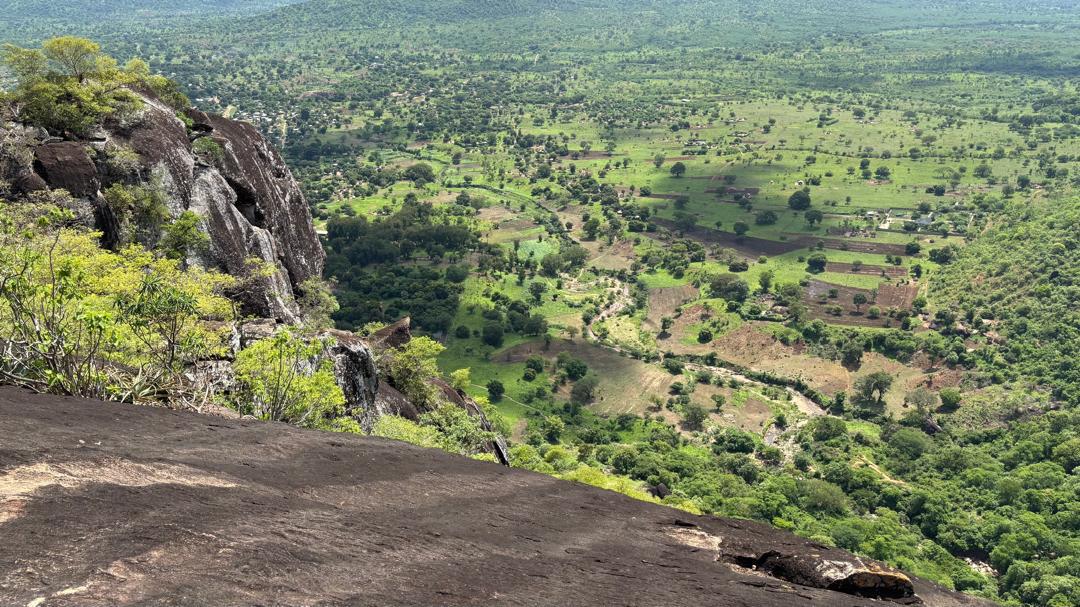The twins report that they sometimes encountered racism or discrimination at school because of their background and very dark skin colour. But these experiences were limited. In Kenya’s multiethnic society, which includes refugees or migrants from Burundi, Somalia, Eritrea, Nigeria and elsewhere, everyone feels foreign from time to time, Anna says.
Standing on their own two feet
When they were 20, the sisters moved out of the orphanage and into a small apartment. With support from the Dominicans, who kept finding new Western sponsors for the children under their care, and their large family, Anna and Lily were able to attend university. Anna earned a diploma in communications, Lily in public relations. In Kenya, a diploma is a (more affordable) precursor to a bachelor’s degree.
Like many graduates, they could not find work in their fields at first. Even though Kenya’s social structure generally makes it easier for people from a variety of backgrounds to integrate, Kenyan nationals are usually given preference in the country’s highly competitive labour market.
Anna and Lily kept their heads above water with a variety of jobs. They helped friends with a clothing store, sold second-hand clothing online themselves and worked as coaches for a youth project. Anna ran a bar for her brother in Juja for a while; Lily sometimes worked asa model.
When the Covid-19 pandemic hit Kenya’s economy, the twins’ odd jobs came to an end. The two moved often – always together – from one small one-bedroom apartment to another, depending on the rental market. Both wanted to earn their bachelor’s degrees, but they lacked the financial resources. In moments of despair, they toyed with the idea of returning to South Sudan in the hopes that as citizens, they might find it easier to find permanent work there.
Separate paths
Then life took a sudden turn for one of them. Lily found a partner, also from South Sudan, who lived in the USA. In 2021, she managed to get a visa, and the sisters had to separate for an extended period for the first time in their lives.
Lily is now training to become a nurse in a medium-sized city in the state of New York. She has a green card. She has not yet experienced open racism in the USA, she says. It helps that she has a cousin living in the same city, as well as a friend she met in the Kakuma refugee camp. Other members of the large Nadai family live in other US states. Getting together with them is difficult, Lily says, but she takes comfort in the fact that she could stay with them if she had to. A sponsoring family that supported Anna and Lily in the orphanage also stays in touch.
Anna still lives in Juja, but she has made progress, too. Her brothers helped her finance a bachelor’s degree in communications, and she has gained more of a foothold in the media landscape – for instance as a freelance journalist and with a few of her own videos on YouTube. She has a permanent part-time position in a community-based organisation in which she coaches disadvantaged girls. Lily also supports her financially.
Anna is well integrated into the city’s community, has a large circle of friends and often has her hands full with her various projects. “Juja has become my home,” she says.
What unites both siblings, is the pain of separation. “The fact that we can talk every day makes it easier,” Lily says. “And I also take comfort in the fact that I can help Anna by being here.” She is determined to keep supporting her relatives and for that reason also make something of herself. She thinks that doing so will be easier in the USA than in Kenya. At the same time, the East African country is still more familiar to her; she says that life there is “more pleasant”.
Plans for the future
Above all, Anna would like Lily to come to her graduation ceremony next year in Kenya. What she would like most is to move to the USA to be with her and their other relatives, but she could imagine going to Europe, too. “The main thing is that I have the opportunity to work and earn money,” she says.
That’s also important to her because of something the sisters call the “black tax”: “My brothers and Lily have always supported me,” Anna says. “I also need to be able to help other members of my huge family soon. It’s a kind of family tax.”
Anna and Lily only returned to South Sudan once, when their father’s remains were reburied in a ceremony. That was in 2011. “If the country was peaceful and stable,” Anna says, “I could imagine making a new beginning there.”
Lily, however, says that she no longer feels a deep connection to the region where it all began. “Right now, I can only imagine visiting,” she says. “Nothing more.”
Katharina Wilhelm Otieno is an editor at D+C and works partly in Nairobi.
euz.editor@dandc.eu
